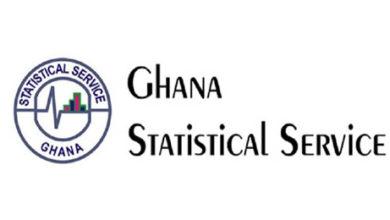GUTA welcomes import duty reductions despite Minority criticisms

The Ghana Union of Traders Association (GUTA) has dismissed concerns that the recently announced reduction in benchmark values of import duties is insignificant.
President of GUTA, Dr Joseph Obeng, said import duty reform introduced on Wednesday by the government is consistent with demands they have put before Customs countless times during negotiations.
“This mitigation by the government, somebody may see it as negligible but it is very essential,” Dr Obeng said on PM Express, a current affairs programme on the Joy News channel on MultiTV.
The new import duties reform kicks in on Thursday, April 4.
Vice President Dr Mahamudu Bawumia, who disclosed this at the Economic Management Team (EMT) town hall meeting Wednesday, said, benchmark value of import duties will be slashed by 50 per cent while importers of vehicles will enjoy a 30 per cent.
The Association of Ghana Industries (AGI) has cautioned importers against getting too excited about the new reforms because the benchmark duty reduction does not mean a reduction in duties.
Chief Executive Officer of AGI, Seth Twum Akwaboah, told Joy News Wednesday that the benchmark values do not “add much” because they become inapplicable if importers are declaring the right values.
He admits, however, that a total invoice value reduction in import rates would have catastrophic effects on Ghanaian industries, suggesting that would have opened the flood gates for imports.
Increased import has been blamed for the depreciation of the local currency.
Minority concerns
The Minority National Democratic Congress (NDC) spokesperson on Finance, Cassiel Ato Forson, also said on PM Express Wednesday evening that the reform will not yield the needed relief that GUTA and other importers have been demanding.
“No. Unfortunately, the World Trade Organisation and our laws – the Customs Act – frowns on benchmark valuation. It is something that is prohibited by the World Trade Organisation, the World Customs Organisation and the laws of Ghana.
“Per the laws of this country, the Customs Act, Customs can only apply import duties, as approved by Parliament on invoice values. Benchmark values are only used for the purposes for risk management and cannot be used for import duty purposes,” the former Deputy Finance Minister said.
GUTA defends
According to Dr Obeng, the benchmark values have been used for many years – even under NDC’s administration which Mr Forson served under – so for him to suddenly claim it breached the law and international protocols was disingenuous.
“If your goods have been uplifted before, if something that you were supposed to pay $20,000 but after applying the benchmark you are going to pay $80,000, that is when you will see how significant this is,” he said.
How the benchmark value reduction works
Mr Ato Forson explained that the benchmark value is a set value Customs assigns to specific good that it will use for import duties computation when the invoice value of the good is deemed too low.
“For instance, if you bring in an electrical cable and the invoice value is [GHS]4 and Customs benchmark value – which is the gazetted Customs value – is say [GHS]6. You [importer] are staying at [GHS]4 and they are saying [GHS]6. So there is a difference of [GHS]2.
“What the Vice President is saying is that [GHS]2 will be reduced by 50% [and 30% if it is a vehicle]. If they are to reduce the entire [GHS]6 by 50% then it means they are reducing it below your invoice value which is [GHS]3, instead of the [GHS]4,” he said.





